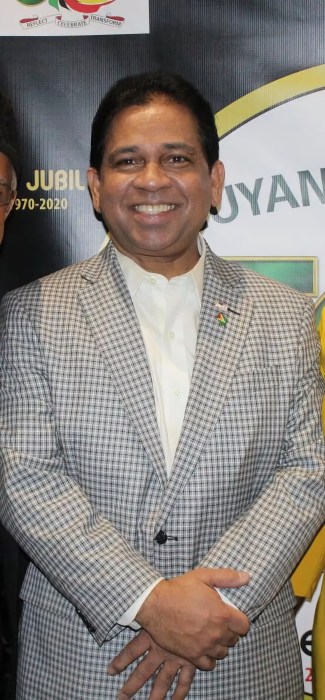In what his critics call a shameless attempt to avoid his government falling, President Donald Ramotar suspended sittings of Guyana’s parliament this week just as the opposition parties in the national assembly were preparing to pass a no confidence vote in his administration that would have forced him to call general elections in three months at the latest.
From all appearances, the move did not come as a surprise to A Partnership For National Unity (APNU) and the Alliance For Change (AFC), which had in August handed in a terse one-line petition to the assembly clerk, saying the opposition had lost all confidence in the government.
Once this was done, systems and processes which result from such a serious political and constitutional move began to fall into place. As usual, the 65-member house took its annual recess in the second week of August and was scheduled to resume on Oct. 10.
A full month passed of nothingness before Ramotar picked enough political pluck to call the first sitting on the assembly on Monday but hours before legislators took to their seats, Ramotar announced that he had decided to prorogue or suspend sessions of the assembly, effecting giving himself powers to run the Caribbean trade bloc nation without parliamentary oversight for up to six months.
The move has triggered widespread condemnation from domestic and international observers not the least being the normally politically dormant Catholic Church and the Washington D.C-based Organization of American States (OAS).
Neither denied that Ramotar had used a valid clause in the constitution to chase home legislators and to prevent the 33 opposition MP’s from approving the no confidence motion but both clearly called for a return to parliamentary democracy in the shortest possible period.
A point to note is that all 33 of the 65 opposition members had turned out, many decked out in crisp business suits to cast their votes. Colleagues across the aisle stayed away as the first session in three months had been cancelled.
Of the commentary on the situation so far, the Jamaica Observer has been most strident and forthright in its criticisms.
It said that Ramotar “clearly intends to maintain himself in power and delay elections as long as possible. Meanwhile, he has done his country considerable reputational damage. To deliberately create a situation in which the executive is exercising power without a functioning parliament is a subversion of democracy. It is tantamount to the conversion of an elected president into a de facto dictatorship.”
It also called his reason for suspending sessions to preserve the life of parliament rather than completely dissolving it “a transparent farce” and a sad day for Guyana.
The move has however, placed the opposition on the back foot, practically inviting them to do whatever they please.
From what is known so far by way of a strong and protracted opposition to the presidential move, the APNU has scheduled a mass rally for Friday night where it will be forced to detail its official reaction to the move or face the specter of appearing to be weak and meek.
One thing is clear, however, is that the PPP has had a history of political hardheadedness that often leads to civil and other forms of unrest. The British sent troops to dislodge the administration in colonial 1953 as it toyed with communism, install an interim government and fresh elections four years later.
In the early 1960s, the CIA and other western agencies fermented riots, street protests, labor strikes and other acts to weaken an unyielding administration later changing the electoral system to pry the PPP from office.
This is what the two parties are facing in the wake of the suspension, a government that is prepared to hang in at all costs.
The prorogation has almost wiped away the furor from Attorney General Anil Nandlall who was caught on an audio tape detailing knowledge of plans by pro government gunmen to invade and shoot up staffers at the daily Kaieteur News Newspaper for its sustained coverage of corruption and other forms of malfeasance.
It is stuff like this, also widespread corruption, the closeness of authorities to the narco trade, Ramotar’s refusal to recognize and sign opposition bills and motions passed in parliament, government’s refusal to bring mega projects to the assembly for scrutiny and a host of other ills that have sparked the latest crisis.






















